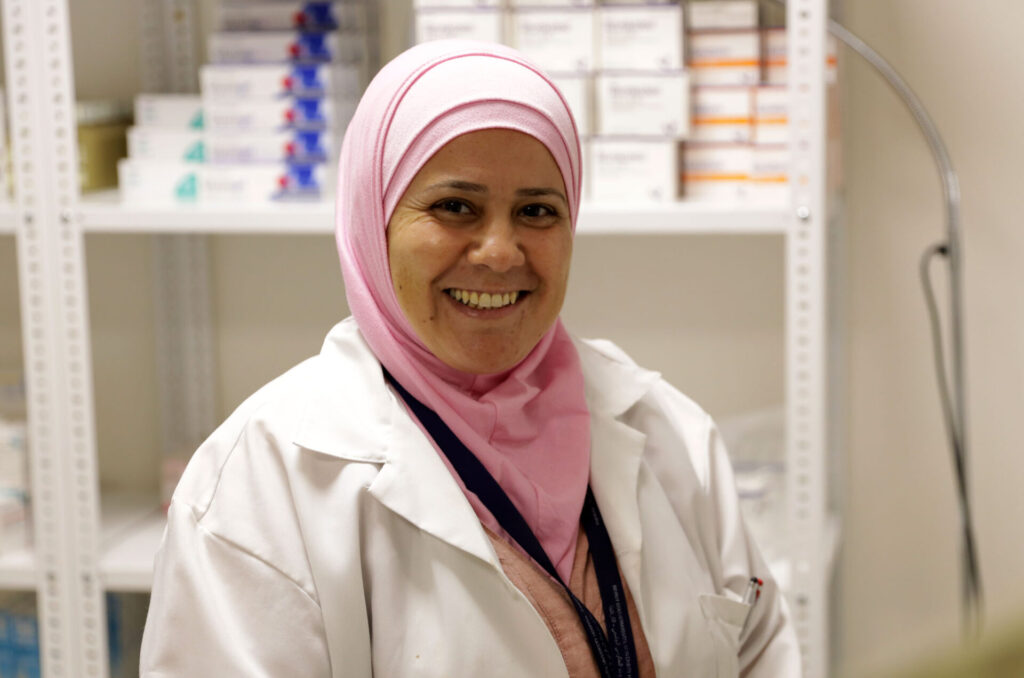Jul, 2014
Lebanon hospitals identified the first case of the deadly Middle Eastern Respiratory Syndrome (MERS) virus in May and the topic of controlling the spread of infections in hospitals has become a priority.
Mounir El-Hajj Khalil is responsible for control of infections in the hospital, located in Saida in southern Lebanon. He lists several key steps nurses are taking to preventing the spread of germs: isolation of the patient, hand washing and wearing personal protective equipment like facemasks.


30,000 surgical face masks for Lebanon’s PCRS hospitals to prevent spread of infection.
Health masks are expensive and the hospital can’t normally afford to purchase them, Mounir says. But, thanks to an AmeriCares donation of nearly 30,000 particulate respirator surgical face masks, 11,200 of which went to Hamshari Hospital, Mounir has been able to ensure this critical step in controlling the spread of infectious diseases is taken.
Working with long-time partner Health Care Society (HCS), Anera delivered the in-kind shipment in the Spring of 2014 to Hamshari and other PRCS hospitals. Now every department of Hamshari Hospital has a box of the masks, along with instructions on how best to use them.
HCS Executive Director Bahija Mayassi underlined the importance of such shipments, “Providing these important items and other medical equipment allows the hospitals to provide access for more patients to quality health services. Our support is critical because the hospitals do not have the financial resources and rely on donations to carry on.”
At Hamshari Hospital, Mounir was grateful for the high quality items. “The facemasks we got are of great quality. I learned about this type during my training on infectious disease control, but this is the first time that I’m actually really using them.”
Mounir started working at Hamshari Hospital in 1999 as a trainee nurse while he completed his studies at Al-Quds Nursing Institute. He joined the staff in 2003 and soon specialized in prevention, monitoring and control of infections.
“There are two cases for which we use the N95 masks:” explains Mounir, “to prevent the spread of a contagious disease like MERS or tuberculosis and to protect patients with low immunity, especially patients with AIDS or leukemia.” Mounir adds, “the masks are essential because they can help block both the entry and exit of germs.”
Cases of tuberculosis are not very common but once or twice a year, Hamshari Hospital receives a patient who needs to be isolated while awaiting transfer to a specialized institute. Mounir explains that patients with low immunity must be protected from any minor infection, which could prove fatal to them. “In these cases, the medical staff and anyone visiting the patient should wear a mask in the patient’s room.”


Mounir trained five head nurses on their correct use and they then trained the hospital’s 78 nurses, so everyone knows how to reduce infection risks.
“If we happen to get a case of MERS, we are ready to deal with it like any other infectious disease,” says Mounir confidently. “Our medical staff is trained to control infectious diseases and now we have what we need to do that.”


